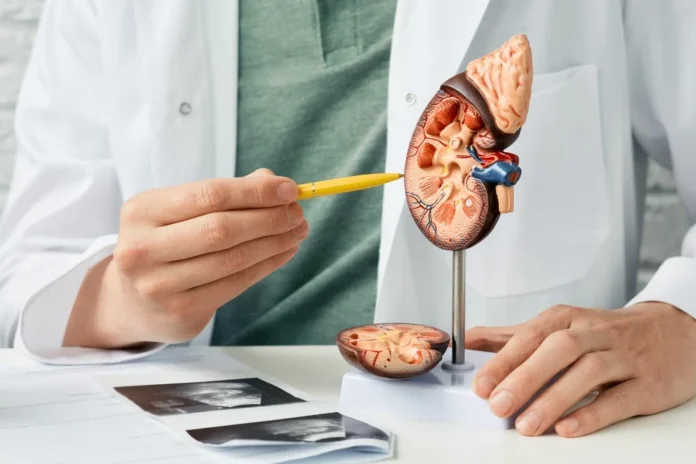Kidney issues can progress silently, often showing no symptoms in the early stages. However, as the kidneys start deteriorating, they may present subtle signs. Recognizing these early can prevent severe damage. Here’s an overview:
1. Changes in Urination
- Increased Frequency: Needing to urinate more often, especially at night.
- Decreased Output: Producing less urine than usual.
- Foamy or Frothy Urine: Indicates protein leakage, a sign of kidney damage.
- Blood in Urine: Can signal kidney infection, stones, or damage.
- Dark or Discolored Urine: Dehydration or other underlying kidney problems.
2. Swelling in the Body
- Edema (Swelling): Fluid buildup due to poor kidney filtration may cause swelling in the legs, feet, hands, or face.
3. Persistent Fatigue
- Anemia: Damaged kidneys may fail to produce enough erythropoietin (a hormone), leading to anemia and chronic tiredness.
4. Skin Problems
- Itching: Waste buildup in the blood can cause severe itching and dryness.
- Rashes: Accumulation of toxins due to poor kidney function might lead to skin rashes.
5. Poor Appetite or Nausea
- Toxin Buildup: Can cause nausea, vomiting, or a general loss of appetite.
6. Metallic Taste or Bad Breath
- Uremia: Excess waste in the blood can lead to a metallic taste in the mouth or ammonia-like bad breath.
7. Shortness of Breath
- Fluid Overload: Fluid may build up in the lungs due to impaired kidney function.
- Anemia-Related Breathlessness: Lack of red blood cells to carry oxygen can also cause this.
8. High Blood Pressure
- Impaired Kidney Function: The kidneys help regulate blood pressure, so high blood pressure can signal kidney issues.
9. Pain in the Back or Side
- Kidney Stones or Infection: Can cause localized pain around the kidney area or radiating pain.
10. Difficulty Concentrating or Memory Issues
- Toxin Accumulation: Can impact brain function, causing confusion or trouble focusing.
What You Can Do
- Monitor Symptoms: Keep track of changes in urination, swelling, or any of the above signs.
- Regular Checkups: Routine blood and urine tests can help detect kidney issues early.
- Stay Hydrated: Proper hydration supports kidney health.
- Healthy Diet: Limit salt, processed foods, and excess protein to reduce kidney strain.
- Manage Blood Pressure and Diabetes: These are major risk factors for kidney disease.
- Avoid Overusing Painkillers: Prolonged use of NSAIDs (like ibuprofen) can harm kidneys.
If you notice any of these signs, consult a doctor promptly to assess kidney function with tests like creatinine, GFR (glomerular filtration rate), or urinalysis. Early intervention can prevent further deterioration.
Would you like to explore preventive tips or lifestyle adjustments to support kidney health?



